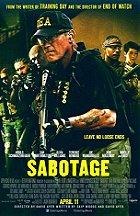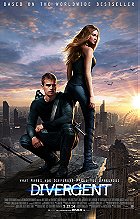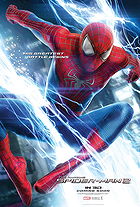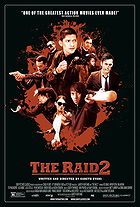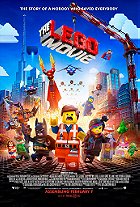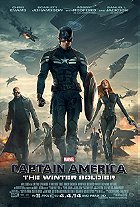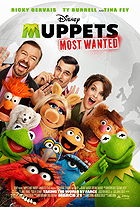It's completely foolish at this point to expect a Transformers picture to be genuinely good from a serious critical standpoint, but even dumb summer blockbusters require a deft touch to make them work. Michael Bay's first Transformers remains one of the worst big-budget blockbusters of its decade, while its sequel, Transformers: Revenge of the Fallen, was the worst big-budget blockbuster of its decade, with the latter so wrong-headed that even Bay and star Shia LaBeouf have publically admitted that they screwed up. 2011's Transformers: Dark of the Moon was intended to be an atonement, with Bay promising to dial down the humorous excess and produce a grittier instalment. But if this is really the result of Bay and co. trying their hardest, all hope is lost for this series (and Bay's career). An obnoxiously loud, repugnant, overlong blockbuster, Dark of the Moon is an absolute chore to get through, and though some of the mayhem is halfway entertaining, you have to wade through 90 minutes of utter tripe to get to it.

Dark of the Moon contains some revisionist history, positing that the Apollo 11 moon landing of 1969 was spearheaded with an ulterior motive: to investigate an alien spaceship that crash-landed on the moon's surface a decade earlier. Within the craft is robot Sentinel Prime (voiced by Leonard Nimoy), former Autobot leader and the elder to Optimus Prime (Peter Cullen). Fast forward to the 21st Century, and the Decepticons are determined to resume their war with the Autobots, seeking to acquire a teleportation device that has the potential to strip Earth of all life in order to rebuild the Transformers' home world of Cybertron. But this plot is a secondary concern, with the mostly movie concentrating on Sam Witwicky (Shia LaDouche) and his hot girlfriend Carly (Rosie Huntington-Whiteley). Now an adult, Sam is struggling to find a job in spite of having saved the world on two occasions, and becomes drawn into the Autobot/Decepticon conflict which also involves the American military.
It's clear that Bay was shooting for a more sophisticated instalment here, opening with a rather intriguing segment to convey the revisionist history. Bay attempts to heighten verisimilitude by mixing genuine archive footage with faux archive footage and staged scenes, but the result feels too frenetic, jumping between the various sources as if the editor was afflicted with ADHD. Unfortunately, Dark of the Moon fails to improve much from this point onward, returning to business as usual for the series: idiotic human characters and their clichéd problems. This is the third Transformers movie, yet the titular robots are still given supporting roles, even though the Transformer-centric plotline could sustain an entire feature. Moreover, while the humour is dialled down and Bay attempts to get serious, there are still mini-robots lurking around who say and do thoroughly ludicrous things. Sam's parents also show up for more unfunny monkey business, while the supporting cast espouses exaggerated accents (including Ken Jeong and Alan Tudyk) to inject even more superfluous failed humour into the enterprise.

Dark of the Moon treats its mythology and back-story as homework, with the script deploying as much exposition as possible in a perfunctory way, leading to pure boredom between all the 'sposions. And for a major studio production, Dark of the Moon is an exceedingly ugly movie, with Bay's aggressive “orange and teal” colour scheme making for visual diarrhoea, while the pedestrian cinematography is thoroughly uninvolving. Although it's pleasant to report that Bay dialled down his obnoxious shaky-cam tendencies for this endeavour, the results aren't anything to write home about, with strictly pedestrian action scenes that aren't overly thrilling. There's simply no rhythm or sense of pacing to Bay's work; the movie amounts to a jarring mishmash of over-edited scenes, and the dissonance caused by the various tones could cause whiplash. One minute we're meant to get emotional over the 9/11-esque destruction perpetrated by the Decepticons, and the next we're meant to be excited about an impending battle. There's insufficient connective tissue, making it feel as if chunks of the movie are missing. Even more bewildering is the ending - in the course of twenty seconds, there's romantic talk between Sam and Carly, followed by a rushed montage set to a quick Optimus Prime voiceover, after which the credits suddenly appear. It all feels fucking awkward and random.
Bafflingly, the digital effects are borderline terrible. It would seem that the animators were on autopilot for the majority of the movie, as Dark of the Moon's CGI is woefully obvious and incredibly phoney. CGI is meant to be utilised to maintain an illusion and make audiences wonder how various moments were pulled off, but the Transformers here look every bit like the digital creations that they are, and it's never possible to accept them as tangible beings. There's also a CGI recreation of John F. Kennedy which looks worse than the average video game. An actor in make-up, or even a vague lookalike, would be far more effective. There are a few fun moments here and there, but Bay's focus during the climax is all wrong, with the humans again taking the foreground and doing most of the heroic stuff. Just, why?

The departure of Megan Fox was a golden opportunity for Bay to recruit an actress with actual talent, but he squanders the chance by recruiting Huntington-Whiteley, a model chosen strictly for her looks who makes her acting debut here. Her first scene features the actress in underwear, and Bay's camera leeringly observes her, only very rarely shooting above her waistline. One must wonder what an actress like Zooey Deschanel or Ellen Page could have brought to a love interest role, though Bay would probably have a tough time attracting someone so classy to this picture due to the director's perverted visual instincts. It goes without saying that the acting is awful here, with LaDouche again making no palpable effort, while the military jarheads are completely forgettable. Even though Bay concentrates on the humans so much, none of them are in any way memorable.
Exactly the kind of soulless CGI demo reel that people frown on Hollywood for producing, this third Transformers picture ultimately amounts to a numbing sensory assault best enjoyed by masochists wanting their eardrums to be permanently damaged. Despite a few enjoyable scenes here and there, momentum is too often halted by dumb humour, and Bay stretches out various set-pieces to the point that they become repetitive and pointless. This series needs to end and be rebooted with a filmmaker who might do something worthwhile.
4.1/10
 Login
Login
 Home
Home 183 Lists
183 Lists 1674 Reviews
1674 Reviews Collections
Collections
 0 comments,
0 comments, 